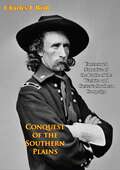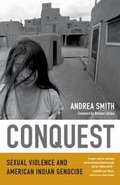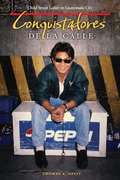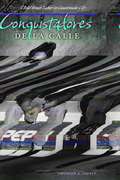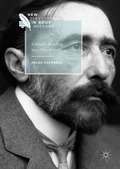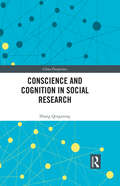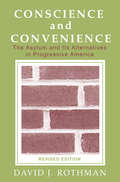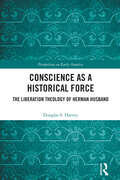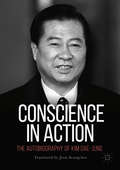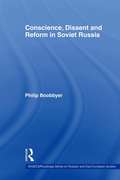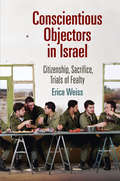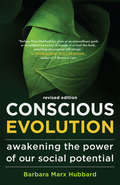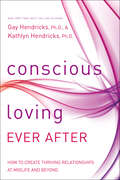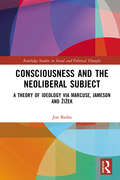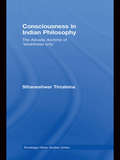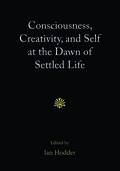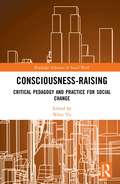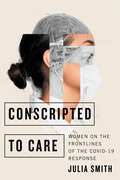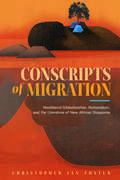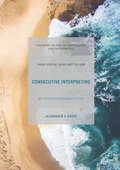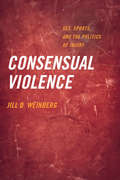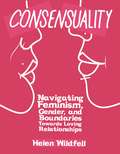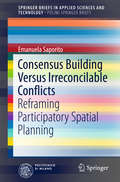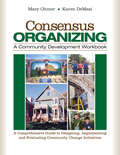- Table View
- List View
Conquest of the Southern Plains: Uncensored Narrative of the Battle of the Washita and Custer's Southern Campaign
by Charles J. BrillOne of the leading books critical of Custer, published after the death of Mrs. Elizabeth Custer in 1933. A history of Custer's campaign on the southern plains and the Battle of the Washita. With appendices giving the text of official government reports, letters, and official accounts of the battle. Although published in 1938, the author is of the opinion that the battle was more of a massacre than a true battle and that Custer's account is not be trusted. Covers the Washita Battle and includes additional information from other sources including Sheridan's and Custer's official reports. Information on the Sand Creek Massacre, Medicine Lodge Treaty and much more.
Conquest: Sexual Violence and American Indian Genocide
by Andrea SmithIn this revolutionary text, prominent Native American studies scholar and activist Andrea Smith reveals the connections between different forms of violence--perpetrated by the state and by society at large--and documents their impact on Native women. Beginning with the impact of the abuses inflicted on Native American children at state-sanctioned boarding schools from the 1880s to the 1980s, Smith adroitly expands our conception of violence to include the widespread appropriation of Indian cultural practices by whites and other non-Natives; environmental racism; and population control. Smith deftly connects these and other examples of historical and contemporary colonialism to the high rates of violence against Native American women--the most likely to suffer from poverty-related illness and to survive rape and partner abuse. Smith also outlines radical and innovative strategies for eliminating gendered violence.
Conquistadores de la Calle: Child Street Labor In Guatemala City
by Thomas A. OffitThe first comprehensive, book-length study of its kind, Conquistadores de la Calle presents the findings of nearly two years of ethnographic research on the streets of Guatemala City, toppling conventional wisdom that the region's youth workers are solely victims, or that their labor situations are entirely the result of poverty and family breakdown. Documenting the voices and experiences of the city's working children, this fascinating study reveals counterintuitive motivations for those who choose to abandon schooling in favor of participating more fully in their families' economies. The processes of developing skills and planning for their social and economic futures are covered in depth, presenting evidence that many members of this population operate well above survival level and are decidedly not marginalized or members of an underclass. Conquistadores de la Calle also makes important distinctions between these young workers-a generation of Maya and Ladino boys and girls-and the homeless children or gang youth who have been so much more widely studied. Contextualizing a variety of data, ranging from detailed ethnographic portraits of the children's lives and the monthly income of children engaged in common street vocations (such as shining shoes or serving as porters) to educational histories and socialization activities, Thomas Offit has produced a rich trove of findings in a significant segment of urban economics that is tremendously important for anthropologists, Latin Americanists, and those interested in the lives and labors of children in the cities of the developing world.
Conquistadores de la Calle: Child Street Labor in Guatemala City
by Thomas A. OffitThe first comprehensive, book-length study of its kind, Conquistadores de la Calle presents the findings of nearly two years of ethnographic research on the streets of Guatemala City, toppling conventional wisdom that the region's youth workers are solely victims, or that their labor situations are entirely the result of poverty and family breakdown. Documenting the voices and experiences of the city's working children, this fascinating study reveals counterintuitive motivations for those who choose to abandon schooling in favor of participating more fully in their families' economies. The processes of developing skills and planning for their social and economic futures are covered in depth, presenting evidence that many members of this population operate well above survival level and are decidedly not marginalized or members of an underclass. Conquistadores de la Calle also makes important distinctions between these young workers-a generation of Maya and Ladino boys and girls-and the homeless children or gang youth who have been so much more widely studied. Contextualizing a variety of data, ranging from detailed ethnographic portraits of the children's lives and the monthly income of children engaged in common street vocations (such as shining shoes or serving as porters) to educational histories and socialization activities, Thomas Offit has produced a rich trove of findings in a significant segment of urban economics that is tremendously important for anthropologists, Latin Americanists, and those interested in the lives and labors of children in the cities of the developing world.
Conrad's Reading: Space, Time, Networks (New Directions in Book History)
by Helen ChambersThis book aligns concepts and methods from book history with new literary research on a globally studied writer. An innovative three-part approach, combining close reading the evidence of reading, scrutiny of international book distribution circuits, and of Conrad's many fictional representations of reading, illuminates his childhood, maritime and later shore-based reading. After an overview of the empirical evidence of Conrad's reading, his sparsely documented twenty years reading at sea and in port is reconstructed. An examination the reading practices of his famous narrator Marlow then serves to link Conrad's own maritime and shore-based reading. Conrad's subsequent networked reading, shared with his closest male friends, and with literate multilingual women, is examined within the context of Edwardian reading practices. His fictional representations of reading and material texts are highlighted throughout, including genre trends, periodical reading, reading spaces and their lighting, and the use of reading as therapy. The book should appeal both to Conrad scholars and to historians of reading.
Consanguinity in Context
by Alan H. BittlesAn essential guide to this major contemporary issue, Consanguinity in Context is a uniquely comprehensive account of intra-familial marriage. Detailed information on past and present religious, social and legal practices and prohibitions is presented as a backdrop to the preferences and beliefs of the 1100+ million people in consanguineous unions. Chapters on population genetics, and the role of consanguinity in reproductive behaviour and genetic variation, set the scene for critical analyses of the influence of consanguinity on health in the early years of life. The discussion on consanguinity and disorders of adulthood is the first review of its kind and is particularly relevant given the ageing of the global population. Incest is treated as a separate issue, with historical and present-day examples examined. The final three chapters deal in detail with practical issues, including genetic testing, education and counselling, national and international legislation and imperatives, and the future of consanguineous marriage worldwide.
Conscience and Cognition in Social Research (China Perspectives)
by Zhang QingxiongThis book is a critical examination of the different roles of conscience and cognition in social research in China and the West, exploring how the two traditions can enrich each other and help societies navigate through the complex intellectual and moral crises of our time.Drawing on a rich array of primary and secondary sources, this title traces the development of the Confucian conception of conscience, from Confucius and Mencius to Xiong Shili and Mou Zongsan, two representatives of Neo-Confucianism. This primacy of a moral sense is compared and contrasted with the tension within the Western culture between strains that place a premium on understanding and a deep commitment to the search for meaning in such philosophers as Habermas and Heidegger. The author explicates why such a commitment is essential to social research and how the focus on instrumental rationality that has defined modernity may be corrected by recentering the role of conscience on intellectual inquiry in general. To that end, both Chinese and Western cultures have plenty to offer both in terms of substantive insights and research methodologies.The book will be a crucial reference for scholars and students interested in Western philosophy, comparative philosophy and Chinese philosophy.
Conscience and Convenience: The Asylum and Its Alternatives in Progressive America
by David J. RothmanConscience and Convenience was quickly recognized for its masterly depiction and interpretation of a major period of reform history. This history begins in a social context in which treatment and rehabilitation were emerging as predominant after America's prisons and asylums had been broadly acknowledged to be little more than embarrassing failures. The resulting progressive agenda was evident: to develop new, more humane and effective strategies for the criminal, delinquent, and mentally ill. The results, as Rothman documents, did not turn out as reformers had planned. For adult criminal offenders, such individual treatment could be accomplished only through the provision of broad discretionary authority, whereby choices could be made between probation, parole, indeterminate sentencing, and, as a measure of last resort, incarceration in totally redesigned prisons. For delinquents, the juvenile court served as a surrogate parent and accelerated and intensified individual treatment by providing for a series of community-based individual and family services, with the newly designed, school-like reformatories being used for only the most intractable cases. For the mentally ill, psychiatrists chose between outpatient treatments, short-term intensive care, or as last resort, long-term care in mental hospitals with new cottage and family-like arrangements. Rothman shows the consequences of these reforms as unmitigated disasters. Despite benevolent intentions, the actual outcome of reform efforts was to take the earlier failures of prisons and asylums to new, more ominous heights. In this updated edition, Rothman chronicles and examines incarceration of the criminal, the deviant, and the dependent in U.S. society, with a focus on how and why these methods have persisted and expanded for over a century and a half despite longstanding evidence of their failures and abuses.
Conscience as a Historical Force: The Liberation Theology of Herman Husband (Perspectives on Early America)
by Douglas HarveyConscience as a Historical Force is the first true analysis of the life and thought of the radically democratic eighteenth-century backcountry figure of Herman Husband (1724–1795) and his heavily metaphorical political and religious writings during the “Age of Revolution.”This book addresses the influence of religion in the American revolutionary period and locates the events of Herman Husband’s life in the broader Atlantic context of the social, economic, and political transition from feudalism to capitalism. Husband’s metaphorical reading of the Bible reveals the timeless nature of his message and its relevance today. Other studies of Herman Husband fail in this regard even though, this book argues, this is the most valuable lesson of his life. The debate over the importance of religion in the American Revolution has neglected its connection with both the English radicals of the seventeenth century and continental religious radicals dating back further still. Essentially, the “antinomian” movement, where individuals refused to acknowledge any power greater than that of their own conscience, was Atlantic in scope and dates to the origins of Christianity itself.With a chronological approach, this study is of great use to students and scholars interested in the politics and religion of eighteenth-century America.
Conscience in Action: The Autobiography of Kim Dae-jung
by Kim Dae-Jung Jeon Seung-Hee Lee Hee-HoThis book is an English translation of the authoritative autobiography by the late South Korean President Kim Dae-jung. The 2000 Nobel Peace Prize winner, often called the Asian Nelson Mandela, is best known for his tolerant and innovative “Sunshine Policy” towards North Korea. Written in the five years between the end of his presidency and his death in 2009, this book offers a poignant first-hand account of Korea’s turbulent modern history. It spans the pivotal time span between the Japanese colonial period (1910-1945) and reconciliation in the Korean Peninsula (2000-2009). In between are insightful insider descriptions of everything from wars and dictatorships to the hopeful period of economic recovery, blooming democracy, peace, and reconciliation. Conscience in Action serves as an intimate record of the Korean people’s persistent and heroic struggle for democracy and peace. It is also an inspiring story of an extraordinary individual whose formidable perseverance and selfless dedication to the values he believed in led him to triumph despite more than four decades of extreme persecution.
Conscience, Dissent and Reform in Soviet Russia (BASEES/Routledge Series on Russian and East European Studies #Vol. 21)
by Philip BoobbyerThis book embraces the political, intellectual, social and cultural history of Soviet Russia. Providing a useful perspective of Putin’s Russia, and with a strong historical and religious background, the book: looks at the changing features of the Soviet ideology from Lenin to Stalin, and the moral universe of Stalin's time explores the history of the moral thinking of the dissident intelligentsia examines the moral dimension of Soviet dissent amongst dissidents of both religious and secular persuasions, and includes biographical material explores the ethical assumptions of the perestroika era, firstly amongst Communist leaders, and then in the emerging democratic and national forces.
Conscientious Objectors in Israel: Citizenship, Sacrifice, Trials of Fealty (The Ethnography of Political Violence)
by Erica WeissIn Conscientious Objectors in Israel, Erica Weiss examines the lives of Israelis who have refused to perform military service for reasons of conscience. Based on long-term fieldwork, this ethnography chronicles the personal experiences of two generations of Jewish conscientious objectors as they grapple with the pressure of justifying their actions to the Israeli state and society—often suffering severe social and legal consequences, including imprisonment.While most scholarly work has considered the causes of animosity and violence in the Israeli-Palestinian conflict, Conscientious Objectors in Israel examines how and under what circumstances one is able to refuse to commit acts of violence in the midst of that conflict. By exploring the social life of conscientious dissent, Weiss exposes the tension within liberal citizenship between the protection of individual rights and obligations of self-sacrifice. While conscience is a strong cultural claim, military refusal directly challenges Israeli state sovereignty. Weiss explores conscience as a political entity that sits precariously outside the jurisdictional bounds of state power. Through the lens of Israeli conscientious objection, Weiss looks at the nature of contemporary citizenship, examining how the expectations of sacrifice shape the politics of both consent and dissent. In doing so, she exposes the sacrificial logic of the modern nation-state and demonstrates how personal crises of conscience can play out on the geopolitical stage.
Conscious Evolution: Awakening the Power of Our Social Potential
by Barbara Marx HubbardA Seminal Work of Visionary Hope, Updated for the 21st Century In this era of government gridlock, economic and ecological devastation, and seemingly intractable global violence, our future is ever more ripe for — and in need of — fresh, creative reimagining. With her clear-eyed, inspiring, and sweeping vision of a possible global renaissance in the new millennium, Barbara Marx Hubbard shows us that our current crises are not the precursors of an apocalypse but the natural birth pains of an awakened, universal humanity. This is our finest hour. Conscious Evolution highlights the tremendous potential of newfound scientific knowledge, technological advances, and compassionate spirituality and illustrates the opportunities that each of us has to fully participate in this exciting stage of human history. As we do, we will bring forth all that is within us and not only save ourselves, but evolve our world.
Conscious Loving Ever After: How To Create Thriving Relationships At Midlife And Beyond
by Gay Hendricks Kathlyn HendricksAre you passionately dedicated to experiencing your full capacity for love? If so, you are in for a thrilling ride on the greatest journey imaginable. If that sounds like a tempting invitation, keep reading, and prepare to take in some life-altering truths: That as you get older, your love life can get better. That instead of fading, your relationships can flourish. That you can have more exquisite love and more passionate sex in the second half of life than you ever had before. Kathlyn and Gay Hendricks, the pioneering authors of the original best-selling book Conscious Loving, show you how in this guide to creating vibrant and joyful connections from your mid-40s onward. Midlife is a time when we all face a choice: to settle into fixed routines and beliefs or to expand toward new horizons. With candor, compassion, and plenty of humor, drawing on experiments in the "living laboratory" of their own marriage as well as stories from their clients and colleagues, Katie and Gay offer insights and practices to help you: • Expand and enrich love by making your own creative essence your top priority • Take blame and criticism out of your communication with those you love • Use "presencing" to tap into the flow of intimacy in every moment • Attract new love into your life • Enjoy the best sex ever Whether you’re partnered or single, Conscious Loving Ever After can light your way through the layers of unconscious relating that so many of us get caught in. From a set of powerful Fear Melters, a Ten-Minute Stuff Talk, and a Ten-Minute Heart Talk to a range of whole-body learning processes designed to translate ideas into action, here are the tools you need to transform your romantic life so you can thrive in your full capacity for love.
Consciousness and the Neoliberal Subject: A Theory of Ideology via Marcuse, Jameson and Žižek (Routledge Studies in Social and Political Thought)
by Jon BailesConsciousness and the Neoliberal Subject outlines a theory of ideological function and a range of ideological positions according to which individuals rationalise and accept socio-economic conditions in advanced consumer capitalist societies. Through a critical examination of the social and psychoanalytic theories of Herbert Marcuse, Fredric Jameson, and Slavoj Žižek, the author extends the understanding of ideology to consider not only the unconscious attachment to social relations, but also the importance of conscious rationalisation in sustaining ideologies. In this way, the book defines different ideologies today in terms of the manner in which they conditionally internalise a dominant neoliberal rationality, and considers the possibility that entrenched social norms may be challenged directly, through conscious engagement. It will appeal to scholars of social and political theory with interests in ideology, neoliberalism, psychoanalytic thought and critical theory.
Consciousness in Indian Philosophy: The Advaita Doctrine of ‘Awareness Only’ (Routledge Hindu Studies Series)
by Sthaneshwar TimalsinaThis book focuses on the analysis of pure consciousness as found in Advaita Vedanta, one of the main schools of Indian philosophy. According to this tradition, reality is identified as Brahman, the world is considered illusory, and the individual self is identified with the absolute reality. Advaitins have various approaches to defend this argument, the central one being the doctrine of 'awareness only' (cinmatra). Following this stream of argument, what consciousness grasps immediately is consciousness itself, and the notions of subject and object arise due to ignorance. This doctrine categorically rejects the plurality of individual selves and the reality of objects of perception.Timalsina analyzes the nature of consciousness as understood in Advaita. He first explores the nature of reality and pure consciousness, and then moves on to analyze ignorance as propounded in Advaita. He then presents Advaita arguments against the definitions of 'object' of cognition found in various other schools of Indian philosophy. In this process, the positions of two rival philosophical schools of Advaita and Madhva Vedanta are explored in order to examine the exchange between these two schools. The final section of the book contrasts the Yogacara and Advaita understandings of consciousness. Written lucidly and clearly, this book reveals the depth and implications of Indian metaphysics and argument. It will be of interest to scholars of Indian philosophy and Religious Studies.
Consciousness, Creativity, and Self at the Dawn of Settled Life
by Ian HodderOver recent years, a number of scholars have argued that the human mind underwent a cognitive revolution in the Neolithic. This volume seeks to test these claims at the Neolithic site of Çatalhöyük in Turkey and in other Neolithic contexts in the Middle East. It brings together cognitive scientists who have developed theoretical frameworks for the study of cognitive change, archaeologists who have conducted research into cognitive change in the Neolithic of the Middle East, and the excavators of the Neolithic site of Çatalhöyük who have over recent years been exploring changes in consciousness, creativity and self in the context of the rich data from the site. Collectively, the authors argue that when detailed data are examined, theoretical evolutionary expectations are not found for these three characteristics. The Neolithic was a time of long, slow and diverse change in which there is little evidence for an internal cognitive revolution.
Consciousness-Raising: Critical Pedagogy and Practice for Social Change (Routledge Advances in Social Work)
by Nilan YuAlmost everywhere across the world, economic inequality has been rising within and across national borders. The vision of a fairer world embodied in the Universal Declaration of Human Rights is being assailed by the advance of conservative ideology aided by vitriolic right-wing populism sweeping across the globe. Neoliberal ideology has had a profound impact in the shaping social work and human services at the frontlines. This book contributes to scholarship in critical practice and theory. It does so by exploring a practice approach steeped in the critical tradition that has hitherto received inordinately nominal attention in social work literature. The book features accounts of consciousness-raising in a variety of contexts – caste relations, race and religion, gender and sexuality, disability and social class. The narratives are meant to tease out conceptions and potential applications of consciousness-raising as an approach for critical practice. It will be of interest to practitioners, educators and students of social work, community development, social development and social pedagogy as well as those engaged in the promotion of human rights and social justice.
Conscripted to Care: Women on the Frontlines of the COVID-19 Response
by Julia SmithWith the vast majority of healthcare and social workers identifying as women, the vanguard of the COVID-19 response was distinctly gendered. In Conscripted to Care Julia Smith introduces us to the women who faced the worst effects of the pandemic and the inequities it exposed. Through clear prose and fascinating critical analysis, she documents their largely unseen contributions and sacrifices, both professional and domestic.Drawing on interviews and focus groups with nearly two hundred women from a range of backgrounds and occupations, Smith reveals how structural inequality put women on the frontlines of the pandemic response, yet with inadequate resources and little voice in decision-making. Women shouldered not only the triple burden of paid work, unpaid care, and mental load, but also increased emotional labour. While some women were categorized as “essential,” others remained in the shadows. All faced unsustainable workloads, moral distress, and burnout while continuing to demand better services for those in their care.An analysis of Canada’s COVID-19 response from the perspective of those who staffed it, Conscripted to Care presents crucial lessons for those interested in public health and how it relates to gender and economic equality, as well as public policy.
Conscripts of Migration: Neoliberal Globalization, Nationalism, and the Literature of New African Diasporas
by Christopher Ian FosterIn Conscripts of Migration: Neoliberal Globalization, Nationalism, and the Literature of New African Diasporas, author Christopher Ian Foster analyzes increasingly urgent questions regarding crises of global immigration by redefining migration in terms of conscription and by studying contemporary literature. Reporting on immigration, whether liberal or conservative, popular or scholarly, leaves out the history in which the Global North helped create outward migration in the Global South. From histories of racial capitalism, the trans-Atlantic slave trade, and imperialism to contemporary neoliberal globalization and the resurgence of xenophobic nationalism, countries in the Global North continue to devastate and destabilize the Global South. Britain, France, Italy, and the United States, in different ways, police the effects of their own global policies at their borders. Foster provides a substantial study of a new body of contemporary African diasporic literature called migritude literature. Migritude indicates the work and ideas of a disparate yet distinct group of younger African authors born after independence in the 1960s. Most often migritude authors have lived both in and outside Africa and narrate the experiences of migration under the pressures of globalization. They also emphasize that immigration itself and stereotypes of the immigrant are entangled with the history of colonialism. Authors like Fatou Diome, Shailja Patel, Abdourahman Waberi, Cristina Ali Farah, and others confront critical issues of migrancy, diaspora, departure, return, racism, identity, gender, sexuality, and postcoloniality.
Consecutive Interpreting
by Alexander V. KozinThis book sheds light on the phenomenon of consecutive interpreting. It combines phenomenological and empirical analyses to build a communication theory of interpreting. The author begins by reviewing mainstream research on consecutive interpreting and then dissociates himself from it, conducting a three-tier analysis of interpreting data. He concludes by presenting an alternative theory of consecutive interpreting. As he makes clear from the outset, a new and combined methodology for consecutive interpreting needs to be constructed to satisfy both the relation of the phenomenon to experience as well as its social foundation. He also stresses the potential within the humanities for wider employment of the phenomenological empirical method. This book will appeal to students and scholars of linguistics, translation, phenomenology, social interaction and communication
Consensual Violence: Sex, Sports, and the Politics of Injury
by Jill D. WeinbergIn this novel approach to understanding consent, Jill D. Weinberg presents two case studies of activities in which participants engage in violent acts: competitive mixed martial arts (MMA) and sexual sadism and masochism (BDSM). Participants in both cases assent to injury and thereby engage in a form of social decriminalization, using the language of consent to render their actions legally and socially tolerable. Yet, these activities are treated differently under criminal battery law: sports, including MMA, are generally absolved from the charge of criminal battery, whereas BDSM often represents a violation of criminal battery law. Using interviews and ethnographic observation, Weinberg argues that where law authorizes a person's consent to an activity, as in MMA, consent is not meaningfully constructed or regulated by the participants themselves. In contrast, where law prohibits a person's consent to an activity, as in BDSM, participants actively construct and regulate consent. A synthesis of criminal law and ethnography, Consensual Violence is a fascinating account of how consent is framed among participants engaged in violent acts and lays the groundwork for a sociological understanding of the process of decriminalization.
Consensuality
by Helen WindfellThere are infinite possibilities in human relationships, but the fairytale ideal of companionship does not exist for most people. In Consensuality, Helen Wildfell and her co-adventurers detail the process for creating or finding a healthy, successful relationship as well as common pitfalls and how to avoid them, like gender identity, sexual boundaries, power struggles, and emotional dysfunction. Overcoming regret and resentment, the authors describe a journey towards a respectful social environment. Their experiences lead to lessons of self-empowerment and communication tips for building healthy partnerships. We recognize their preferences and boundaries. We discuss how those fit with our own preferences and boundaries. Filled with personal descriptions of the complex layers in human interaction, the book combines gender studies with memoir to truly make the personal political.
Consensus Building Versus Irreconcilable Conflicts: Reframing Participatory Spatial Planning (SpringerBriefs in Applied Sciences and Technology)
by Emanuela SaporitoThis book aims to identify ways of overcoming the limitations of the communicative tradition in understanding participatory spatial planning. Three conceptual models that offer different perspectives on public and civic participation in complex urban planning processes are presented and reviewed: the consensual model, which conceives of planning as a collective decision-making practice geared toward consensus building and conflict resolution; the conflictual model, which views planning as a social mobilization practice addressed at empowerment of marginalized groups; and the trading zone model, which reframes collaborative planning as a coordination activity with respect to practical proposals in the presence of unstable and conflicting rationalities and values. The controversial story of the Integrated Intervention Program "PII Isola Lunetta" in Milan is examined through the interpretative lenses of these models, with detailed interpretation of how each model performs in the field. The book concludes by offering critical reflections on the reframing of participatory spatial planning, highlighting the value of trading zones/trading languages and boundary objects as tools for understanding and addressing collaborative practices in complex and conflictual urban planning processes.
Consensus Organizing: A Comprehensive Guide to Designing, Implementing, and Evaluating Community Change Initiatives
by Mary L. Ohmer Karen DeMasi"The world is changing rapidly and the practice of community organizing needs to change with it. Representing both an homage to, and a departure from the "alinsky traditions" of organizing, Consensus Organizing offers techniques that are specifically designed for urban and rural communities struggling to succeed in the global economy and the information age. Ohmer and DeMasi are experienced organizers who offer a relentlessly thorough examination of the process of bringing diverse communities together to make change and to bridge the ethnic and economic divisions that keep many communities from succeeding."—Bill Traynor Executive Director, Lawrence CommunityWorks Inc.A person doesn′t have to be a consensus organizer to think like one. Consensus Organizing: A Community Development Workbook—A Comprehensive Guide to Designing, Implementing, and Evaluating Community Change Initiatives helps students and practitioners begin to think like consensus organizers and incorporate this way of strategic thinking into their lives and their work. Through a wide range of exercises, role-play activities, case scenarios, and discussion questions, this workbook presents the conceptual framework for consensus organizing and provides a practical and experiential approach to understanding and applying consensus organizing to address a range of issues. This workbook is designed to be used by itself or along with Mike Eichler′s text Consensus Organizing: Building Communities of Mutual Self Interest (SAGE, 2007). Key Features and Benefits Provides a step-by-step guide on how to conduct a community analysis of both internal and external neighborhood resources Brings consensus organizing to life through case studies based on the real-life experiences of the authors Offers field exercises that engage the reader in applying and practicing consensus organizing Provides practical tools that community organizers and practitioners can use in their daily work Includes a sample job description, work plan, monitoring report, and field report for hiring and supervising consensus organizers Presents tools for describing and evaluating consensus organizing and community-level interventions Accompanying Website Instructors and students have access to the many activities and cases on the accompanying website.
